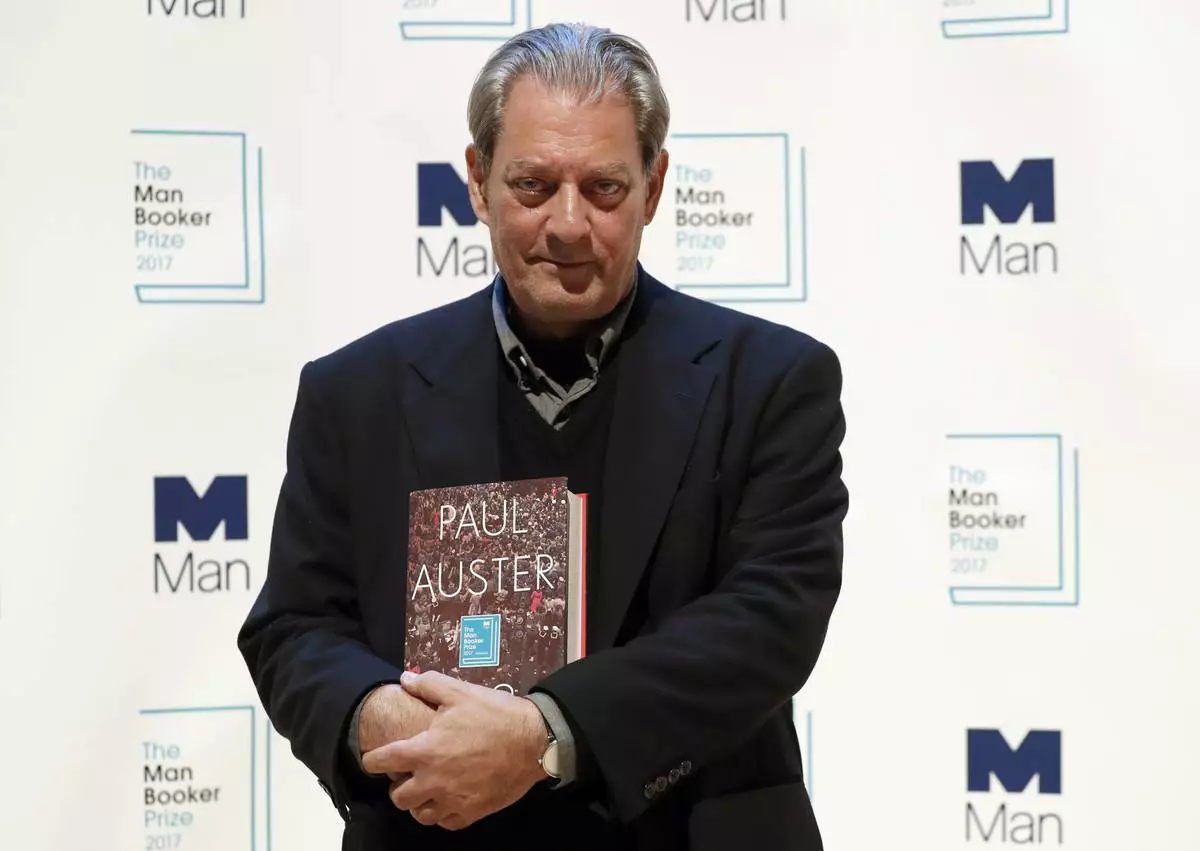Leo finally held his boy Ezrah for the first time when the tot was four months old.
Caught on camera, this is the priceless moment when a happily married dad met his baby son for the first time – when he was four months old.
A sailor, Leo Laurente, 31, was thousands of miles away from home in the middle of the ocean, half way through his nine-month stint at sea, when little Ezrah was born in Divine Word Hospital in the Philippines on 27 September 2018 – four days after his parents’ wedding anniversary.
The closest he got to seeing his beloved nurse wife, Ethil, 31, and their baby boy for months was during daily FaceTime calls, after setting sail for Europe from their home in the Philippines in April 2018, when she was four months pregnant.
He said: “My baby was already four months old by the time I finally got to hold him – but it felt so precious holding my little one for the first time.”
Working nine months on and nine months off, a sailor for seven years, while Leo is used to maintaining long-distance relationships with his loved ones, married for just seven months and knowing Ethil was four months pregnant when he left for his latest voyage was particularly tough.
He continued: “I was happy and excited to find out Ethil was pregnant, but also a little bit sad knowing I would not be able to be there with her when she gave birth to our first baby. I also knew it would be hard on her not having me physically there to support her. It was really hard to leave her.”
As Ethil’s pregnancy progressed, the couple kept in touch via Facebook messenger, which was made possible as the ship Leo was on had WiFi.
Whenever the signal was strong enough, they would also make video calls.
Then, on September 27, Leo went on a coffee break while on duty and saw a message from home, saying Ethil was on her way to hospital and was thought to be in labour.
He recalled: “I was so nervous that I couldn’t concentrate on what I was doing at work. I told a friend how I was feeling. He reassured me not to worry, saying Ethil would be okay.
“Then, at around lunchtime, I got another message which I read immediately. It was from Ethil’s sister, saying she had given birth to a healthy baby – my son.
“In that moment, the first thought that came to my mind was, ‘Thank God for the safe delivery.’”
Immediately, Leo asked for a photo of his newborn baby and saw the tot for the first time on his phone from thousands of miles away.
He added: “I can’t explain the happiness I felt. I kept on staring at the photo, and showed it to whoever I saw on the ship.”
But, with four months left of his contract, Leo still had a long wait before he could hold Ezrah for the first time.
Hearing about milestone moments like his son’s first bath, or when he began to smile, without being there was hard, but Leo treasured their FaceTime calls and seeing pictures that were text by his wife.
“I even bought an internet card to have a better connection, so Ethil and I could constantly send messages and pictures,” he said.
Finally, at the end of January, he returned home to hold his boy for the first time.
“It felt wonderful and I will never forget it,” he said.
Now, he is enjoying every minute of being a full-time dad, until he goes away again this November.
And he is telling his story to give hope to other seafarers in similar situations and to thank the maritime charity,the Sailors’ Society, who supported him when he was docked in the UK, even giving him a stuffed toy for Ezrah.
He said: “The most difficult aspect of being away from my family is knowing I will miss stages of my son growing up and won’t be there to celebrate some special occasions.
“But it is important to remain open-minded and understanding, to work hard and let family be your inspiration.”
Meanwhile, Sailors’ Society CEO Stuart Rivers has praised the sacrifice made by seafarers, whose work is vital to the smooth–running of the country.
He added, “Many people don’t realise that almost everything we use and own comes by sea, transported by seafarers like Leo, who make huge sacrifices to bring us what we need.”
For information, visit www.sailors-society.org
NEW YORK (AP) — Paul Auster, a prolific, prize-winning man of letters and filmmaker known for such inventive narratives and meta-narratives as “The New York Trilogy” and “4 3 2 1,” has died at age 77.
Auster's death was confirmed Wednesday by his literary representatives, the Carol Mann Agency, which did not immediately provide additional details. Auster had been diagnosed with cancer in 2022.
Starting in the 1970s, Auster completed more than 30 books, translated into dozens of languages. A longtime fixture in the Brooklyn literary scene, he never achieved major commercial success in the U.S., but he was widely admired overseas for his cosmopolitan worldview and erudite and introspective style and was named a chevalier of the Order of Arts and Letters by the French government in 1991. He was also shortlisted for the Booker Prize and voted into the American Academy of Arts and Letters.
Called the “dean of American post-modernists” and “the most meta of American meta-fictional writers,” Auster blended history, politics, genre experiments, existential quests and self-conscious references to writers and writing. “The New York Trilogy,” which included “City of Glass,” “Ghosts” and “The Locked Room," was a postmodern detective saga in which names and identities blur and one protagonist is a private eye named Paul Auster. The brief “Travels in the Scriptorium” wraps a story inside a story as a political prisoner finds himself compelled to read a series of narratives by fellow victims that will eventually include his own.
The author’s longest and most ambitious work of fiction was “4 3 2 1,” published in 2017 and a Booker finalist. The 800-plus page novel is a tale of quadraphonic realism in the post World War II era, the parallel journeys of Archibald Isaac Ferguson from summer camp and high school baseball to student life in New York and Paris during the mass protests of the late 1960s.
“Identical but different, meaning four boys with the same name parents, the same bodies, and the same genetic material, but each one living in a different house in a different town with his own set of circumstances,” Auster writes in the novel. “Each one on his own separate path, and yet all of them still the same person, three imaginary versions of himself, and then himself thrown in as Number Four for good measure; the author of the book.”
His other works included the nonfiction compilations “Groundwork” and “Talking to Strangers”; a family memoir, “The Invention of Solitude”; a biography of novelist Stephen Crane; the novels “Leviathan” and “Talking to Strangers” and the poetry collection “White Space.” In his most recent novel, “Baumgardner,” the title character is a widowed professor haunted by mortality and asking himself “where his mind will be taking him next.”
Auster was so much the old-fashioned author that he worked on a typewriter and disdained email and other forms of electronic communication. But he did have an unusually active film career compared to his writing peers.
In the mid-1990s, Auster collaborated with director Wayne Wang on the acclaimed art-house film “Smoke,” an adaptation of Auster’s humorous story about a Brooklyn cigar shop and a certain customer named Paul. The film starred Harvey Keitel, Stockard Channing and William Hurt among others and brought Auster an Independent Spirit Award for best first screenplay. Wang and Auster quickly followed “Smoke” with “Blue in the Face,” an improvised tale which returned to the Brooklyn cigar store and again starred Keitel, along with appearances by everyone from Lou Reed to Lily Tomlin.
Auster eventually made the movies himself. Keitel was featured in “Lulu on the Bridge,” a love story released in 1998 that Auster directed and co-wrote with Vanessa Redgrave. Nine years later, Auster wrote and directed the drama “The Inner Life of Martin Frost,” starring David Thewlis as a novelist and Irène Jacob as the woman with an uncanny connection to the story he’s been writing.
“The four times I’ve worked on movies, I’ve never had a problem talking to actors,” Auster told director Wim Wenders during a 2017 conversation that ran in Interview magazine. “I always felt in great harmony with them. It was after those experiences that I realized there’s a similarity between writing fiction and acting. The writer does it with the words on the page, and the actor does it with his body. The effort is the same.”
Auster married fellow author Siri Hustvedt in 1982 and had a daughter, Sophie, who appeared in “The Inner Life of Martin Frost.” He also had a son, Daniel, from an earlier marriage to the author-translator Lydia Davis. Daniel Auster would struggle with drug addiction and die of an overdose in 2022, shortly after being charged with second-degree manslaughter in the death of his infant daughter, Ruby.
Paul Auster never commented on publicly on his son’s death, but he had written often about parenthood. In “The Invention of Solitude,” published in 1982, he reflected on the “thousands of hours” he has spent with Daniel in the first three years of his life and wondered whether they mattered. “It will be lost forever,” Auster wrote. “All these things will vanish for the boy’s memory forever.”
Born in Newark, New Jersey, Paul Benjamin Auster grew up in a middle class Jewish home torn between his father’s thrift, to the point of miserliness, and his mother’s urge to spend, to the point of recklessness. He would soon feel like an outsider in his family, soured by their materialism and more inspired by James Joyce’s “Ulysses” or the tales of Edgar Allan Poe than by the security of a traditional job.
His ideals would be well tested. After graduating from Columbia University, Auster struggled for years before he was able to find a publisher or earn money from his books. He wrote poetry, translated French literature, worked on an oil tanker, attempted to market a baseball board game and even thought of earning income by growing worms in his basement.
“All along, my only ambition had been to write,” Auster wrote in a brief memoir “Hand to Mouth,” published in 1995. “I had known that as early as 16 or 17 years old, and I had never deluded myself into thinking I could make a living at it. Becoming a writer is not a ‘career decision’ like becoming a doctor or a policeman. You don’t choose it so much as get chosen, and once you accept the fact that you’re not fit for anything else, you have to be prepared to walk a long, hard road for the rest of your days.”

FILE - American writer Paul Auster gestures during the taping of the TV show "Che tempo che fa", in Milan, Italy, March 25, 2009. Paul Auster, a prolific, prize-winning man of letters and filmmaker known for such inventive narratives and meta-narratives as “The New York Trilogy” and “4 3 2 1,” has died at age 77. (AP Photo/Antonio Calanni, File)

FILE - U.S. author Paul Auster makes a speech before receiving the 2006 Prince of Asturias award for Literature from Prince Felipe of Spain and Asturias at a ceremony in Oviedo, northern Spain, Oct. 20, 2006. Paul Auster, a prolific, prize-winning man of letters and filmmaker known for such inventive narratives and meta-narratives as “The New York Trilogy” and “4 3 2 1,” has died at age 77. (AP Photo/Bernat Armangue, File)

FILE - U.S. author Paul Auster, left, receives the 2006 Prince of Asturias award for Literature from Prince Felipe of Spain and Asturias at a ceremony in Oviedo, northern Spain, Oct. 20, 2006. Paul Auster, a prolific, prize-winning man of letters and filmmaker known for such inventive narratives and meta-narratives as “The New York Trilogy” and “4 3 2 1,” has died at age 77. (AP Photo/Bernat Armangue, File)

FILE - U.S. author Paul Auster poses with his book "4321" during a photocall with all six shortlisted authors of the 2017 Man Booker Prize for Fiction, in London, Oct. 16, 2017. Paul Auster, a prolific, prize-winning man of letters and filmmaker known for such inventive narratives and meta-narratives as “The New York Trilogy” and “4 3 2 1,” has died at age 77. (AP Photo/Kirsty Wigglesworth, File)

FILE - American writer Paul Auster speaks during a reading event in solidarity of support for author Salman Rushdie outside the New York Public Library, Aug. 19, 2022, in New York. Paul Auster, a prolific, prize-winning man of letters and filmmaker known for such inventive narratives and meta-narratives as “The New York Trilogy” and “4 3 2 1,” has died at age 77. (AP Photo/Yuki Iwamura, File)

FILE - Writer Paul Auster poses at his home in the Brooklyn borough of New York, Jan. 19, 2006. Paul Auster, a prolific, prize-winning man of letters and filmmaker known for such inventive narratives and meta-narratives as “The New York Trilogy” and “4 3 2 1,” has died at age 77. (AP Photo/Bebeto Matthews, File)















